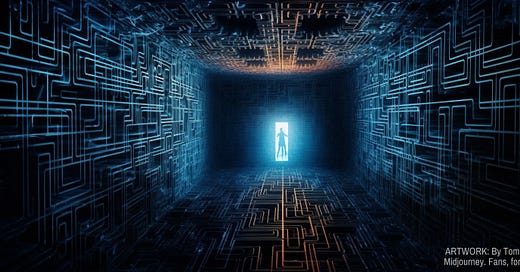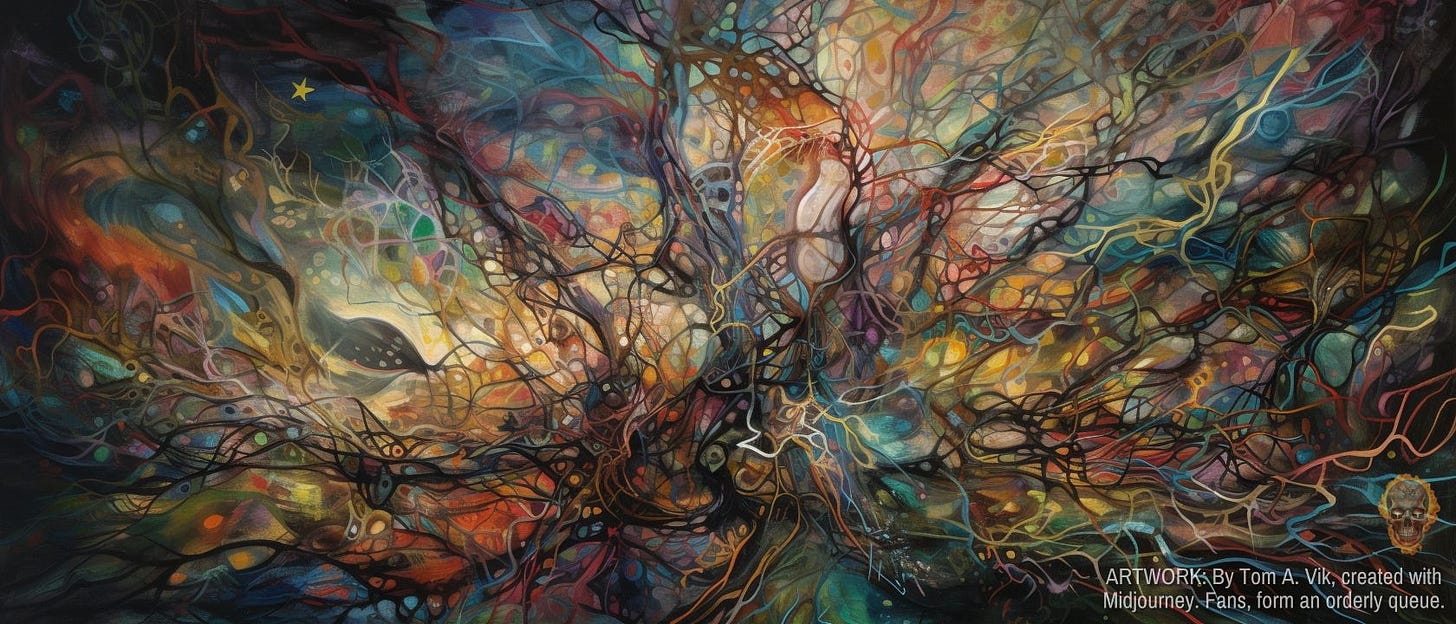What Neuroscience Can Tell You About Spiritual Experiences That You Don't Already Know
You think neuroscience and spirituality are like oil and water, don't you?
Let's mix 'em on the canvas and see what happens. See, these two aren't just strange bedfellows; they're lifelong companions locked in a tango. Why should you care?
Because that three-pound universe inside your skull isn't just pumping neurons; it's a labyrinth where spiritual experiences are birthed, nurtured or dismissed.
The Illusion of Separation
Neurotransmitters. Brain waves. Neural correlates.
Whatever you call it, the meat in your skull is cooking up experiences you label as 'spiritual.' Enlightenment. Even your most mystical visions can be explained—partly, at least—by a cocktail of brain chemicals. What's the catch? You didn't think your enlightenment was just serotonin and dopamine playing nice, did you? Think again. Or don't. Either way, it's not what it seems.
Alan Watts once said:
"You're under no obligation to be the same person you were five minutes ago."
Your brain is under no obligation to stay the same either. With each meditation session or ayahuasca trip, your brain changes, molding new neural pathways.
This is called neuroplasticity, a fact that challenges the idea of fixed self or stable spiritual states.
The Mirror Neuron Paradox
Mirror neurons: The neural underpinnings of empathy.
Yet, in a reality where non-duality reigns, 'empathy' becomes a paradox. Why? Simple. In a universe where everything is one, who is empathizing with whom? Picture Mother Teresa. Icon of compassion. Her brain was a hub of hyperactive mirror neurons, surely. Did that make her any closer to the ultimate reality, the Oneness of all things?
Maybe. Maybe not. But if you think empathy gets you a VIP ticket to enlightenment, reconsider.
Unlocking Mystical States
Psilocybin, LSD, deep meditation—they unlock doors in your brain you didn't know had keys.
Places like the default mode network (DMN) go silent. Suddenly, the ego fades, boundaries dissolve. You're one with the cosmos, baby! Now, researchers like Robin Carhart-Harris are showing that altered states resemble early stages of psychosis. Terrifying? Hardly. It means the veil between 'madness' and 'mystical' is tissue-thin.
A wake-up call for anyone slotting experiences into neat categories.
Spiritual Romanticism is Dead
Cut the fluff. Your spiritual experiences aren't floating in some metaphysical bubble.
They are as grounded in your neural networks as your craving for pizza. So, next time you sit down to meditate or ingest a magic mushroom, remember:
Your brain is the theater, but you—you're both the puppeteer and the audience. Now, why is all this neuroscience hoopla important? Because, my friend, understanding the neural underpinnings of your so-called 'spiritual' experiences doesn't diminish their grandeur. Quite the opposite.
It takes you one step closer to reconciling the finite with the infinite.
And that's a story worth telling, wouldn't you agree?







